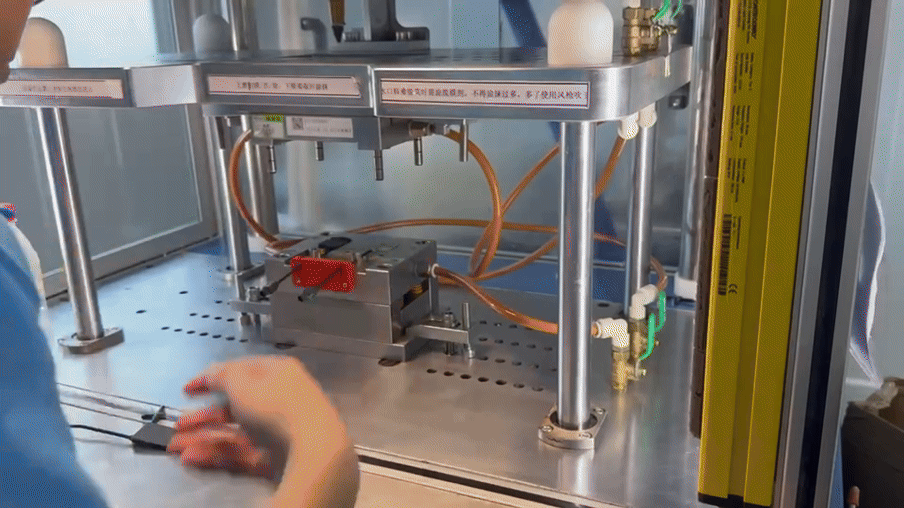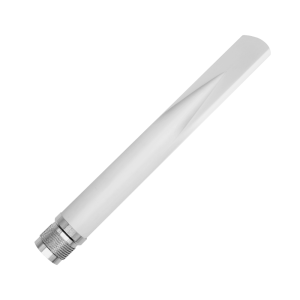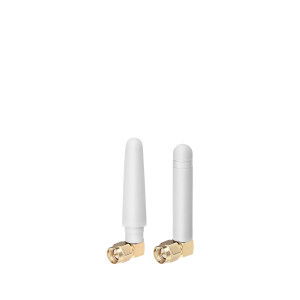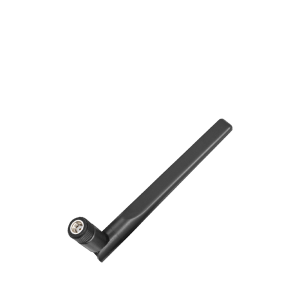Summary
Low-pressure injection molding has been in use for 55 years and continues to be widely applied. Unlike modern digital packaging technologies, it can fully encapsulate antennas and offer superior protection for sensitive electronic components. Aboosty’s maximum LPM encapsulation size achieves 150 x 120 x 30 mm.
Case 1
- Solution: Adopting LPM Technology for Full Encapsulation Protection of Wi-Fi Antennas Tailored for Home Temperature-Controlled Fresh Air Purifiers
- Industry: Smart Home
Case 2
- Solution: Selective LPM Encapsulation Protection for Sensor PCBA
- Industry: Automotive Control, Smart Industry
The origins of low-pressure molding (LPM) can be traced back to the 1970s when it initially emerged in Germany. This innovative process significantly improved the packaging and protection of electronic components. Today, low-pressure injection molding has evolved into a highly mature technology that is widely used in packaging and protecting electronic components. Its advantages include low temperature, low pressure, high efficiency, and low cost, making it an indispensable solution in precision-driven modern industries.
For over a decade, Aboosty has thrived in a highly competitive market, consistently meeting the rigorous reliability standards demanded by discerning buyers. One of our key advantages lies in utilizing advanced low-pressure injection molding technology to encapsulate product components, ensuring unmatched durability and superior quality of our products.

What is Low-Pressure Injection Molding?
Low-pressure injection molding is an innovative manufacturing process between injection molding and potting. It involves injection molding at very low pressures (1.5 to 60 bar) and temperatures as low as 150°C using hot melt adhesives and quickly solidifies and shapes within 5-50 seconds. This process offers superior strain relief. Excellent material properties typically result in water-tight encapsulation with outstanding physical and chemical characteristics. Our external antennas can generally achieve a waterproof rating of IP67-IP68 after being encapsulated using low-pressure injection molding technology.

Why is Low-Pressure Injection Molding Popular for Product Encapsulation?
LPM Encapsulation for Apple MacBook Trackpad PCB and Cooling Fan FPC
Low-pressure injection molding provides excellent encapsulation for the Apple MacBook trackpad PCB and cooling fan FPC. The tightly fitting protective shell shields against static, moisture, and impact, ensuring precise touch functionality and thermal insulation for the PCB. The cooling fan FPC ensures stable performance because it secures and prevents vibrations and dust. This guarantees the MacBook operates smoothly and reliably in complex environments, offering long-term user satisfaction and efficient heat dissipation.

LPM Encapsulation of 125KHz Antenna for Automotive PKE Systems
Injection molding thoroughly envelops the antenna, protecting it from moisture, dust, and vibrations. This method prevents rust, corrosion, signal interference, and component damage, ensuring stable performance. Additionally, it optimizes installation and signal radiation, thus enhancing the PKE system’s reliability and sensitivity. This improvement helps car owners enter their vehicles more quickly and conveniently.

How is the Weather Resistance of Encapsulation Materials
The hot melt adhesives used in low-pressure injection molding offer strong weather resistance. They are widely used across industries such as automotive, consumer electronics, industrial control, medical devices, wireless communication, power tools, and more, making them an excellent choice for product packaging for many brands.
| Material | Operating Temperature | Softening Point | Low-Temperature Flexibility | UL Flame Rating | Other |
| TECHNOMELT6208 N BLACK | -40 to 100℃ | 155℃ | -40℃ | UL94V-0 | —— |
| MACRO MELT 6839S | 210 to 230℃ | 195℃ | -30℃ | UL94V-0 | —— |
| TECHNOMELT PA6782 BLACK | -40 to 140℃ | 170-182℃ | -45℃ | —— | —— |
| TECHNOMELT PA6878 BLACK | -40 to 150℃ | 185℃ | -40℃ | —— | Good chemical resistance |
Aboosty Low-Temperature Injection Molding Encapsulation Cases
Case Study: Full Encapsulation Protection for WiFi Antenna in Home Temperature-Controlled Fresh Air Purifiers
Case Background and Needs
Client A, a supplier of household temperature control devices, faced challenges with their fully metal-enclosed air purifier needing to connect to a Wi-Fi network. However, the device is mostly sealed with metal, which hinders Wi-Fi antenna signal transmission. The only non-metallic part is the top air outlet. Furthermore, the Wi-Fi transmission module’s installation location and the air outlet cause problems. the Wi-Fi transmission module was installed at the bottom of the device, nearly one meter away from the antenna installation area. To complicate matters, the air outlet is exposed to vibration and condensation.
The Solution
Signal Conversion: Use an adapter cable to convert the RF signal of the WIFI module from an IPX interface to an SMA interface.
Cable Selection: Since the antenna cable is 1.2 meters long and typical cables suffer significant signal loss at 2.4GHz, we chose the ALSR200 – UF TPE coaxial cable for its low signal loss (0.8dB/m at 2.5GHz) and 5mm diameter.
Antenna Design: Designed an omnidirectional dual-band WIFI antenna tailored to the customer’s situation.
Encapsulation Process: Utilized low-temperature injection molding technology to encapsulate the antenna, effectively addressing issues with condensation and vibrations at the air outlet.

This solution takes into account the customer’s device structure, signal transmission, and environmental challenges. Through targeted design and process selection, we ensured that the WIFI antenna could work stably and efficiently on the fresh air purifier. Our solution guaranteed the device met its Wi-Fi connectivity requirements while overcoming the challenges presented by the unique environment.
Case Study: Selective Encapsulation Protection for Sensor PCBA

Case Background and Needs
Client B sells laser distance sensor modules, which are non-contact distance measuring sensors provided in PCBA form for integration into customer equipment. These modules are often exposed to harsh conditions such as vibration, water immersion, and condensation due to their widespread use in industrial scenarios.
The Solution
We adopted the low-pressure injection molding process to encapsulate the antenna and PCBA together. This encapsulation effectively addresses several issues faced during the application of a single PCBA module. These include potential impact damage in harsh industrial environments and electrostatic damage to the module. Advanced LPM ensures stable wireless transmission in complex environments, allowing the laser distance sensor module to operate reliably in extreme conditions like vibration, water immersion, and condensation.
This solution meets the high precision and stability requirements of industrial environments for distance measurement sensors. It empowers the client’s equipment to operate accurately and reliably in a wide range of harsh industrial conditions.







